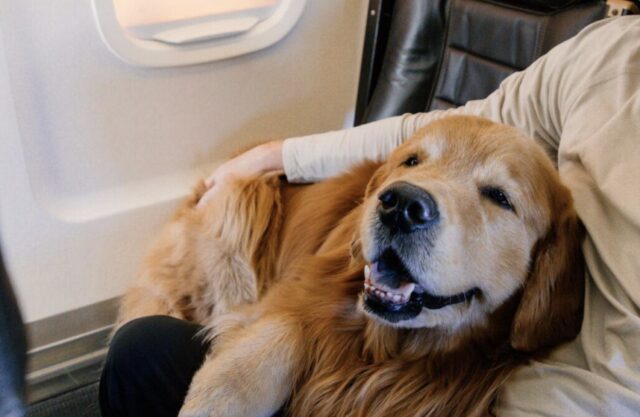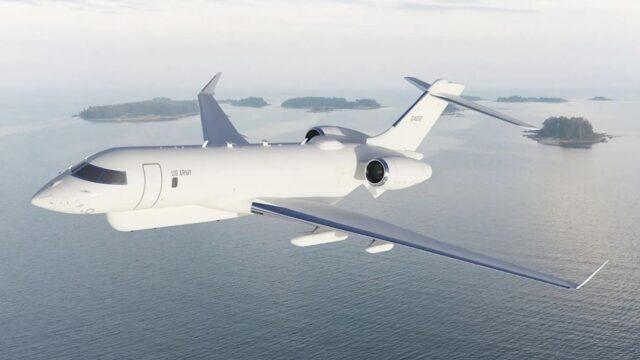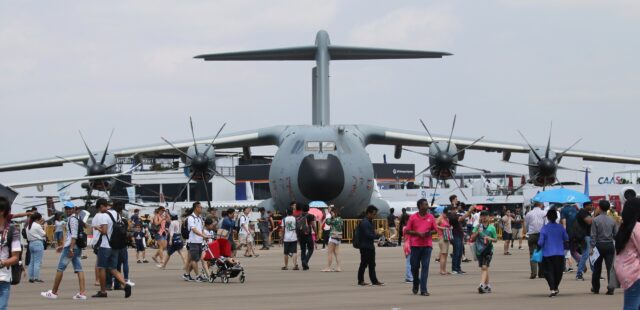Honda Aircraft Company marks milestone with 100% SAF refuelling

October 16, 2025
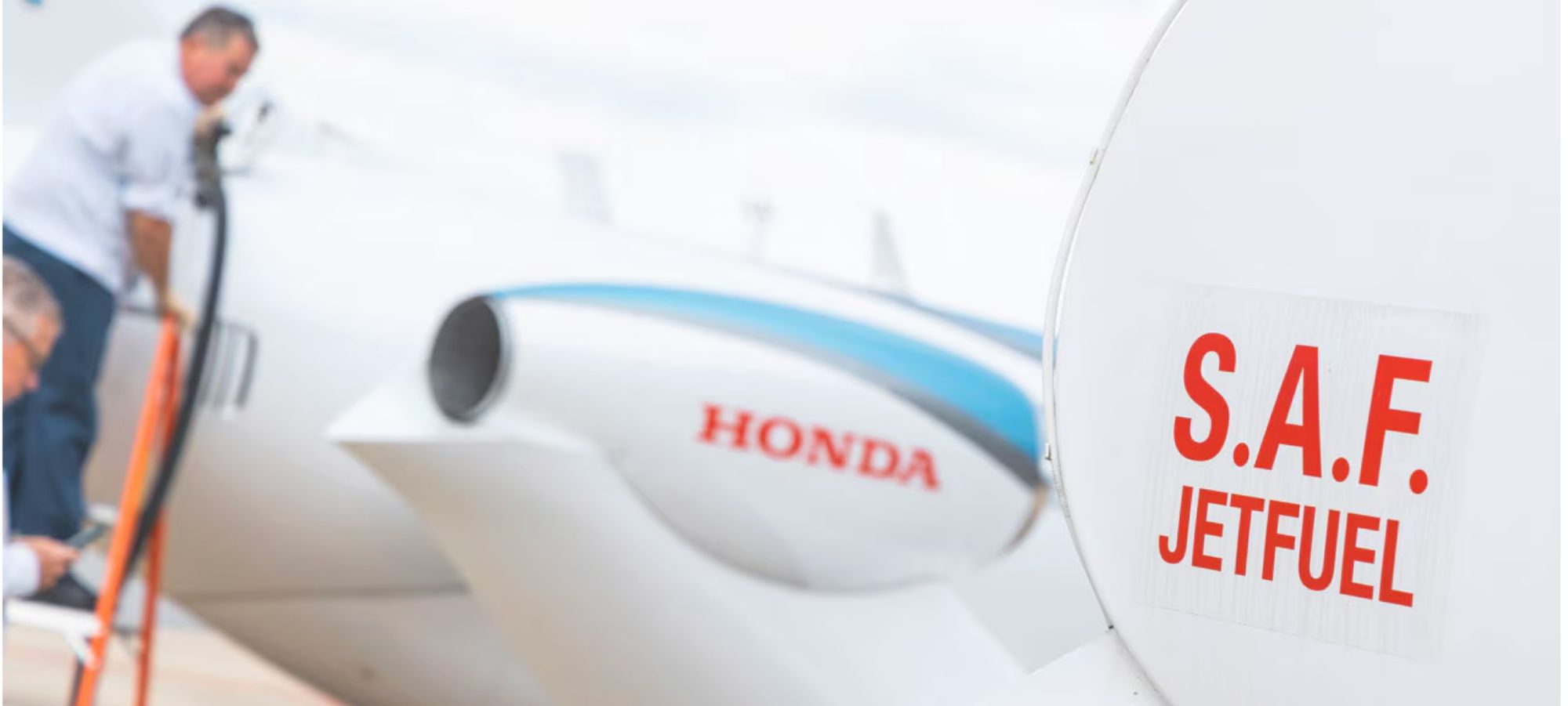
Honda Aircraft Company’s test flight on a 100% blend of sustainable aviation fuel (SAF) marked a first for the twin-turbine very light business jet manufacturer.
The test flight took place on 13 October using a production-model HondaJet Elite II flown on a SAF blend. The flight, which flew over the Greensboro region, took off and landed at Honda’s Piedmont Triad International Airport headquarters in North Carolina, US.
The SAF used to refuel the business jet consisted of a mixture of Hydroprocessed Esters and Fatty Acids – Synthetic Paraffinic Kerosene (HEFA-SPK) and Hydrodeoxygenated Synthetic Aromatic Kerosene (HDO-SAK).
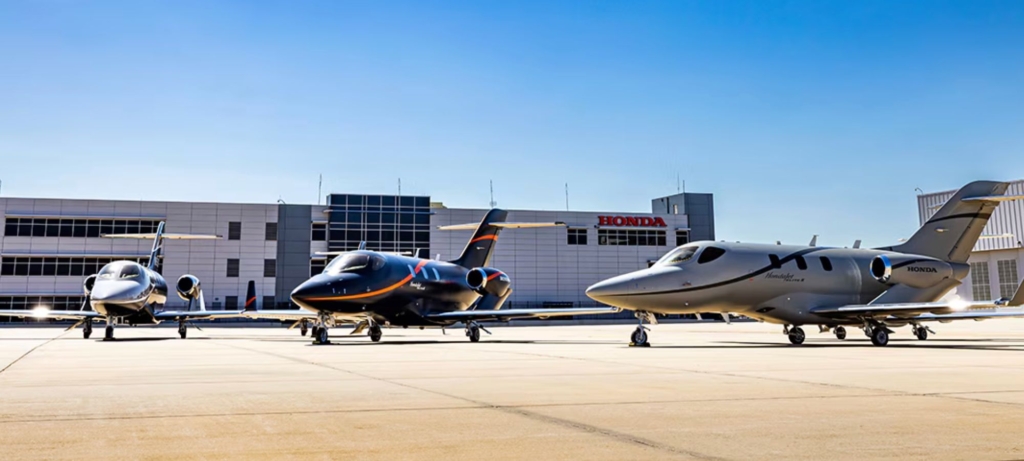
“We are immensely proud of our Honda Aircraft Company engineering team carrying forward our commitment to the future of aviation by demonstrating that the HondaJet is capable of operating on a 100% SAF blend,” said Amod Kelkar, SVP and CCP at Honda Aircraft Company.
HondaJet’s lower carbon journey
The milestone builds on earlier SAF projects. These include ground trials in 2022 and 2023, which saw 100% SAF being used when the jet’s engines (HF120 turbofans, produced by joint venture GE Honda Aero) were tested on the ground. Previously, HondaJet aircraft were only certified for approved SAF blends up to 50%.
Kelkar also noted that the 100% SAF refuelling is a tangible step towards the company’s broader goal of decarbonising all its activities by 2050.
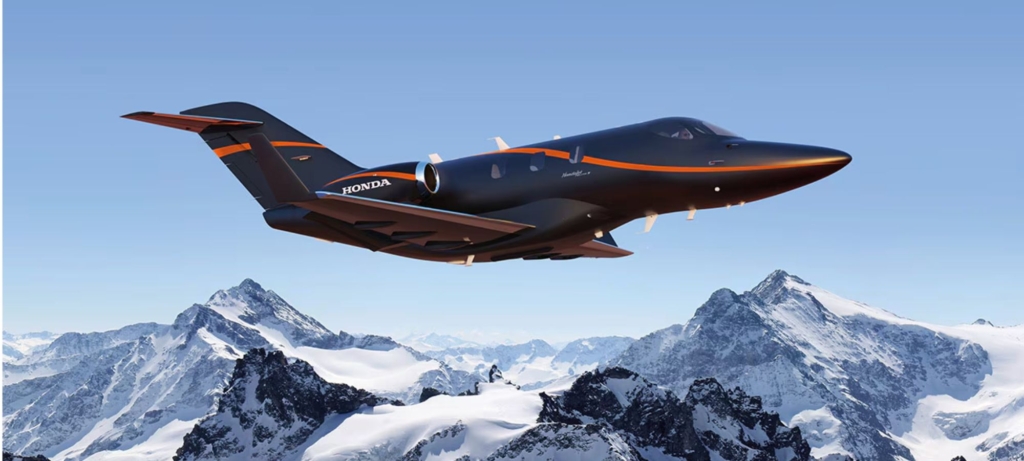
The successful 100% test flight demonstrates that for very light jets, at least full SAF compatibility may be within reach. This will enable operators to decarbonise operations without compromising performance or reliability.
In addition, the HondaJet’s distinctive airframe engineering has enabled the manufacturer to maintain its status as the most efficient jet in its class for the last 10 years. The aircraft’s design maintains laminar flow across the aircraft’s surface, delivering up to a 20% improvement in fuel economy compared with similar models.
Further underpinning Honda’s commitment to the future of sustainable flight, in 2024, the business jet manufacturer was recognised with Tier-6 Sustainable Flight Department Accreditation by the National Business Aviation Association (NBAA) in the Flight category.
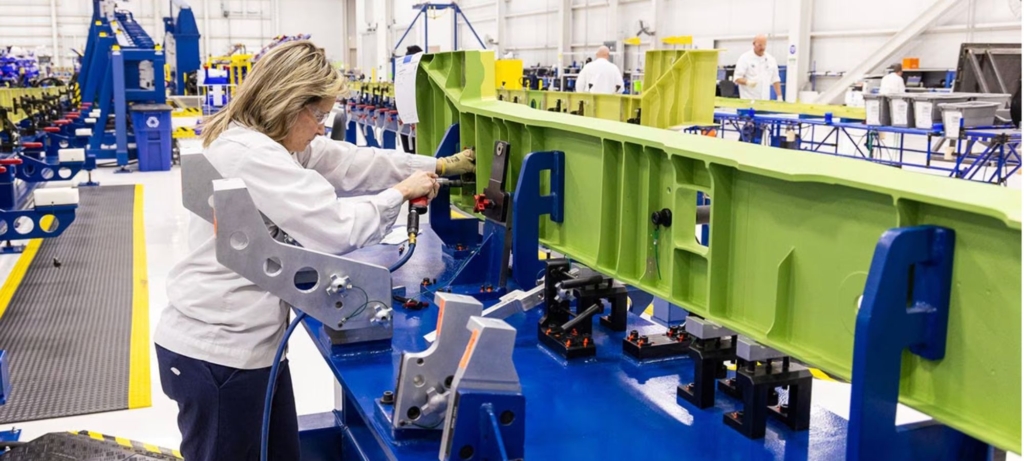
Honda’s business aviation business continues to develop its product line. In addition to the HondaJet Elite II, Honda Aircraft Company is currently developing its HondaJet Echelon. The 11-occupant aircraft, which will be offered alongside the Elite II. As of 2024, the company has delivered over 250 HondaJets to customers globally.
Following in the decarbonised vapour trails of fellow business jet manufacturers
HondaJet’s 100% SAF announcement follows similar test flights by other business jet manufacturers.
In 2023, Brazilian manufacturer Embraer successfully tested 100% SAF in two of its business jets – its Phenom 300E and Praetor 600 business jets. The flights were conducted in Florida at Embraer’s Melbourne facility. In 2022, Embraer also collaborated with Pratt & Whitney to successfully test a GTF-powered E195-E2 aircraft on 100 % SAF.

In November of the same year, Gulfstream became the first organisation to operate a transatlantic flight powered by 100% SAF. The Gulfstream G600 aircraft, powered by Pratt & Whitney PW816GA engines, departed the company’s headquarters in Savannah, landing nearly seven hours later at Farnborough Airport in the UK.
